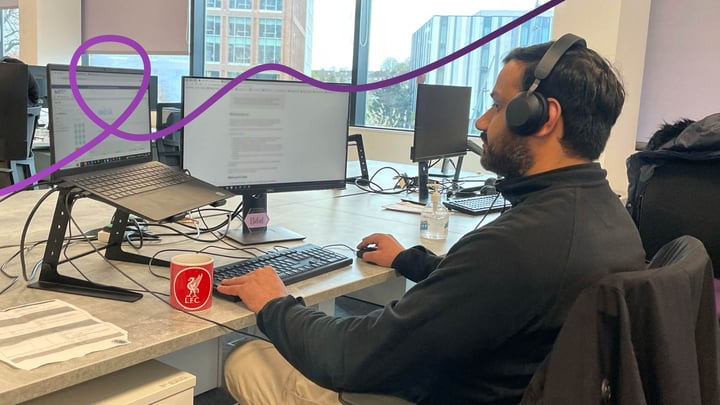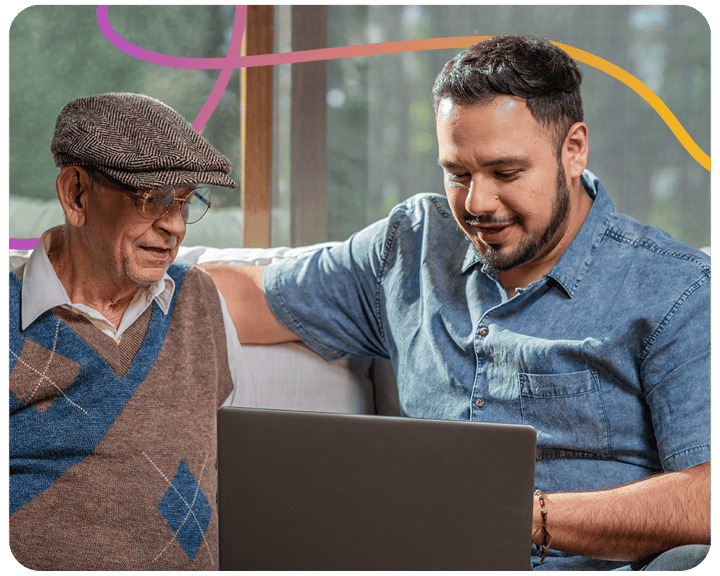Vulnerability is a shared human condition that we all experience at different points in our lives. Typically, when vulnerability is mentioned, it is often associated with the extremes of our life spectrum – the children and the elderly. These age groups, due to their unique circumstances, are often provided with a great deal of attention and support. Yet, there is a significant demographic often overlooked in this conversation – those in their 40s and 50s. Instead of confiding in others, 43% of these adults feel under pressure to “grin and bear it” (Bupa), feeling ashamed and embarrassed to seek support from friends, family, and organisations.
Safeguarding is a term we often use to describe measures taken to protect the health, wellbeing, and human rights of individuals, which allow people – especially those in vulnerable circumstances – to live free from abuse, harm, and neglect (Care Quality Commission). But how do we ensure that we are also safeguarding those who fall outside of the typically vulnerable categories, such as people in their middle-ages who feel they can’t ask for help?
We discussed safeguarding with one of our Customer Service Advisors, Michelle Parsons, shedding light on these often overlooked individuals and how we at We Are Group support and safeguard them in their unique vulnerability.
Michelle is currently a Customer Service Advisor, specifically for our Digital Support programme delivered in partnership with HM Courts and Tribunals Service (HMCTS). She is on the frontline of our business and the first point of contact for people in need. Her experience in customer service spans an impressive 30 years.
Michelle recalled a time when she handled a call from a middle-aged gentleman calling to receive Digital Support in order to appeal a benefits decision that had suddenly stopped his benefits. This included his Personal Independence Payment (PIP) which was his main financial support since he was not of age to claim his state pension. With no money and no family or friends to support him, he felt lost and unsure of what to do next. Although he had worked for most of his life, his epilepsy made it impossible to continue.
“With every call, I put myself into their shoes. I am then able to make that connection with them over the phone, allowing them to open up to me so I can understand their situation and offer them the right support from our programmes.”
He found himself without gas and electricity, with the cold seeping through his windows. Recognising the urgency of the situation, Michelle immediately went into safeguarding mode and felt compelled to help. Her first step was to direct him to Mind, an organisation that provides advice and support on mental health matters, giving him a place to turn to for conversation and support outside of the call between himself and Michelle.
“When I signpost people to charities and agencies, I never provide a generic, nationwide number, I always make sure to find branches local to where the person lives – including numbers for local council schemes or schemes relevant to the person’s age and circumstance, as well as their local Citizens Advice and local charities. I find this really helps, as those who need our Digital Support programme are often digitally excluded, so they can’t look online themselves for local support.”
During the call, the gentleman mentioned he had reached out to various charities, but none of them were able to offer the one-to-one support he needed within the comfort of his own home. This type of support was crucial for him, as he often felt worried about leaving the house for fear of having an epileptic attack. Thankfully, the Digital Support programme delivered by us, in partnership with HMCTS, provided him with the option of in-person support at home, that would help him to complete and submit his digital benefit appeal form without worry.
Following the phone call Michelle compiled a comprehensive Safeguarding Report that detailed the actions she took and pointed out critical areas of concern. She also included the precise date and time of the call, ensuring that all the information was accurately captured and recorded. Upon completion of the report, she promptly forwarded it to our dedicated Safeguarding Team, tasked with deciding the next course of action based on the information provided.
“In the Safeguarding Report I noted what was said, what my concerns were, the organisations I provided information for, with a promise from him that he would contact them, as well as other details that would help our Safeguarding Team provide further support.”
Our Safeguarding Team are also tasked with implementing safeguarding policies, carrying out risk assessments, responding to concerns, and providing training to our staff and trainers on safeguarding issues, policies and procedures. As well as this, the team provide our Customer Service Advisors with training in how to respond to concerning calls.
“We are taught to act on anything that is said that is genuinely concerning. This means listening to them and looking out for any trigger words that prompt a safeguarding concern. We are also trained to be calm and ask questions, including ‘are you able to talk to me?’ and ‘are you safe?’. It’s all about breaking the barrier and getting them to talk, remaining calm and getting them the help they need.”
“The team I work with is truly brilliant and provides excellent support in safeguarding. Whenever there is a concern, they always go out of their way to ask what's going on and how they can help. This includes looking up numbers and other resources that might be of use. Our management is equally supportive and approachable. If we are ever in doubt, we don't hesitate to get the Safeguarding Team involved. This proactive and supportive work environment makes our team effective in handling every challenge that comes our way.”
For Michelle and all of us at We Are Group, safeguarding is a critical aspect of the support we provide. We recognise the unique circumstances of all demographics, and ensure that those who may not usually be seen as vulnerable, including those in their middle-ages, are safeguarded. Through a proactive, empathetic approach, a detailed understanding of available resources, and thorough safeguarding training, Michelle and our Contact Centre staff are able to provide support and safeguarding to those in need, ensuring they are not overlooked.
Enjoyed this blog? Sign up to our free newsletter for more interesting reads!



